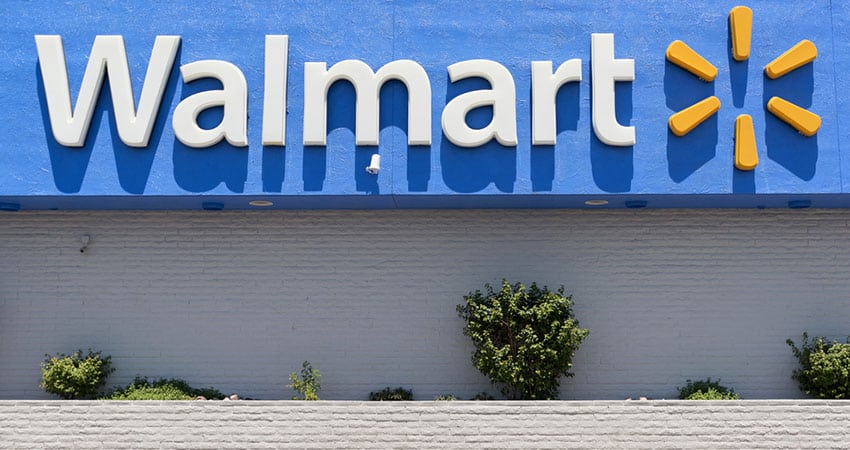Walmart reported a disappointing earnings picture for the first quarter, blaming inflation, overstaffing, excess inventory and supply chain issues as the key culprits that sent profits below what analysts had been expecting.
Walmart reported $2.05 billion in net income, down from $2.73 billion a year ago. Adjusted earnings per share were $1.30, compared to $1.48 expected by analysts surveyed by Refinitiv. Overall ecommerce sales growth was an anemic 1% compared to gains of 37% in the U.S. and 49% globally last year.
The retail giant’s total revenue was $141.57 billion, up just 2.3% from $138.31 billion in Q1 2021 but beating Wall Street’s estimate of $138.94 billion.
“We’re not happy with the profit performance for the quarter and we’ve taken action, especially in the latter part of the quarter on cost negotiations, staffing levels, and pricing while also managing our price gaps,” Walmart president and CEO Doug McMillon told analysts on an earnings call.
McMillon noted that the extreme rate of U.S. inflation – with CPI growth of 8.3% in April per the Bureau of Labor Statistics, especially in food and general merchandise – is “unusual.”
“We’ll control what we can control, reduce our inventory level, and keep prices as low as we can, especially on opening price point food items, while improving our profit performance,” he said.
On the positive side, McMillon said Walmart continues to increase the number of third-party sellers on its marketplace, while seeing strong growth in ad dollars from Walmart Connect and Flipkart Ads. Ad revenue overall grew 30% in the quarter. McMillon said Walmart is also adding users of its GoLocal outsourced delivery service, which launched last year with Home Depot as the first major customer. The platform has more than 1,600 delivery points in the U.S.
Walmart CFO Brett Biggs said the earlier-than-expected return of associates from COVID-19 leave led to “labor scheduling inefficiencies” that hit the bottom line.
“During the quarter, particularly in the middle of the quarter, we weren’t able to fully address or pass along some of the cost increases that impacted profit more than expected,” said Biggs, who is retiring on June 6, being replaced by former PayPal CFO John Rainey. “We’re now managing those costs and passing them along more effectively. The costs related to inventory and fuel prices in the U.S. will strike some into Q2, but the scheduling-related costs have been mitigated.”
Biggs added that sales strength and the warmer weather should enable Walmart to work through the excess inventory “fairly quickly and strategically.”

